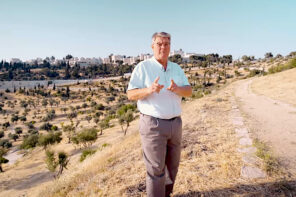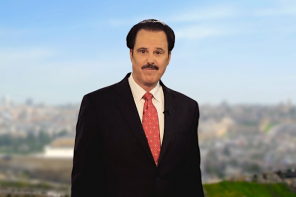Here then is a matter of conscience that never leaves the minds and hearts of liberal Christian leaders like me, and that positively torments us when, as now, the heat is on in the Middle East: What, if anything, to say about the application of Israel’s immense military might in what are manifestly inhumane ways?
During the Israel-Hezbollah war of 2006, I made the mistake of sticking my neck out just a tiny bit on the question of proportionality. I did not say that the recovery of the captured Israeli soldiers (Israel’s stated casus belli) was a ruse; what I said was that the IDF’s devastating attack in Lebanon could not be justified as self defense. And in my organization’s weekly e-blast to our constituents, we advertised a protest rally that one of the American Muslim organizations was about to sponsor.
In short order I was stunned to see one of my rabbi friends quoted in the Los Angeles Times to the effect that I and my organization were out of line for issuing a statement on Lebanon without first consulting him; that the essence of interfaith work is that we should always speak and act in concert, and that I had violated his trust by violating this principle. A bit later I took a call from another colleague, also a rabbi, who was distraught and in tears over the idea that someone she trusted and with whom she had worked in the cause of workplace justice would be joining with Israel’s enemies at such a time.
So here we are again, only this time the IDF-wrought carnage is greater by far than in 2006. And this time I have not said a word about it, except to participate in drafting one of those very broad “Stop the Violence—Let’s Be Friends!” interfaith declarations. Better than nothing, I suppose. But my colleagues in the Muslim community were legitimately grieved by the joint statement’s lack of specificity, and by my declining to sign a Muslim-drafted open letter to the new American president that names some difficult but necessary truths he will need to confront in relation to Israel’s behavior.
A friend who until recently led the Progressive Jewish Alliance in Los Angeles once told me that his outfit was not in the business of changing Jewish views on Israel/the Holocaust/anti-Semitism (which he correctly lumped together as essentially one thing—and a Third Rail); rather, he said, his goal and his group’s goal was to build up an awareness that American Jews could best honor their tradition by recalling some other things that Jews might care about: worker rights, criminal justice reform, universal health care, clean elections, etc. He theorized that bringing focus to these domestic justice concerns might filter back and gradually mollify the militancy of American Jewry vis-à-vis the plight of the Palestinians, the spirit of doing justice (tzedekah) being hard to contain.
“[A]fter such knowledge…what forgiveness?”
Christian progressives face a different challenge, which is overcoming our inhibitions about speaking, preaching and writing a bit more candidly about the huge problems posed by the uncritical support of the United States for the State of Israel. In my view, Christians make a mistake when our point of departure is excoriating Israel for its transgressions or (worse) proposing to answer the question, “But is it good for the Jews?” Instead, our question should be, “But is it good for the United States?” and (still more urgently) “Is it good for the peace of this war-weary world?”
For Christians to be asking “But is it good for the Jews?” is simply intolerable, given the historic involvement of Christians and Christianity in doing so many things that were horrendously bad for the Jews—and also not doing the things that would have saved so many. Contemporary Christians who have bothered to educate themselves on this ghastly history carry around a crushing burden of awareness and cannot help but recall the words of T.S. Eliot (himself an anti-Semite): “after such knowledge…what forgiveness?”
This guilty knowledge is the root of the liberal Christian silence in the face of what happened just now in Gaza. The trouble with guilty silence, of course, is that it gathers into itself yet more corrosive guilt.
As Martin Luther King Jr.’s life and deeds have just been commemorated this past weekend, we might note that King understood well the paralyzing effects guilty knowledge exerted on the hearts of many white clergy as the modern civil rights revolution was beginning to stir. And King showed a way forward for these guilt-stricken clergy: make the issue about what kind of country we aspire to be. Remain aware of the bloodstained past but don’t get stuck there; create the kind of future where the mountaintop vision of equal justice and interracial comity can begin to be realized in our midst.
This is still the path forward for tongue-tied progressive Christians in relation to the Middle East: do not lecture Israel, and do not presume to say what is good for the Jews—but don’t be immobilized by guilty knowledge, either. Simply insist on a new policy and a new vision for the United States in relation to this traumatized region.
I recall when liberal American Christians organized and preached powerfully against the Reagan Administration’s inexplicable (to us) embrace of South Africa’s already-doomed apartheid regime. Also, of course, our outrage over the 43rd president’s embrace of regime change as more than sufficient reason to attack and invade a sovereign nation that had played no part in the terrorism of September 2001. In both instances the central issue for American Christians was the morality of what the United States itself was up to: What did it say about the credibility of the ostensible American commitment to democracy and human rights for us to be cozying up to the detestable apartheid regime? What did it say about our oft-declared love for the rule of law for us to be inflicting shock and awe upon Iraq because we didn’t like its leader?
Progressive Christians should take the same point of departure now, with Gaza in agony. It is hardly necessary for us to recount the sufferings of the Gazans, even despite the extent to which the worst of those sufferings are filtered out by the American media. As deplorable as the effects of the corporate media bubble can be in times like this (and I do not minimize this crucial problem), Americans don’t even need access to independent media to have a pretty good idea that a lot of people on a tiny strip of land—the most densely crowded place on earth—are today experiencing a living hell.
Likewise, it is hardly necessary to call attention to the opportunism involved in the timing of Israel’s assault in Gaza—and also the timing of its unilateral cease fire.
Just two questions should be lifted up in the pulpits and prayers of concerned American Christians in relation to the catastrophe in Gaza: first, is it within our power to stop those horrific weapons from being used? And, second, how does it affect our wish to limit worldwide terrorism—and anti-American terrorism in particular—if we do not stop massively arming and protecting the State of Israel in the way that we have been doing for so long?
On the question of the weapons, it will not be difficult to document where the F-16 fighters, the tanks, and all that ordnance—including the truly satanic new DIME weapon (Dense Inert Metal Explosive) came from. The moral question, for American Christians whose taxes help pay for this, is whether it shall continue. In view of the firepower that was just displayed so vividly, is it not reasonable to say that Israel already has more than enough capacity to defend itself—and that resupplying the IDF continuously with the latest and most lethal weaponry is thus unjust and immoral?
Here the progressive Christians who wish to be more courageous could well take their cue from the many courageous truth-tellers within Israel itself: the activists associated with groups like B’Tselem, Rabbis for Human Rights, Gush Shalom, ICAHD, etc. They see at close range the devastation rendered by US-supplied arms. They understand how much more difficult the challenge of achieving a longterm peace becomes after so many children have been burned and/or buried.
As to the question of the national security of our own nation—defending ourselves by limiting terrorism—here Christians really do need to step out of the media bubble for long enough to recognize the incalculable damage done to our longterm security by our uncritical alliance with the State of Israel.
George W. Bush said recently—and with some noticeable asperity—that only “elites” would believe that the standing of the United States in the eyes of the rest of the world has been seriously damaged on his watch. His bubble of ignorance is admittedly extreme, but there is no excuse for anyone else to remain willfully ignorant of what the world witnessed—and not just the Arab world—when those shells landed on hospitals, refugee camps and UN facilities, and when the United States did all it could to block all international action to restrain and condemn the Israeli actions.
The choice for progressive Christian leaders today is not between guilt-ridden silence and full-throated denunciation of Israeli policy and Israeli aggression. It is certainly not a choice between keeping silent and presuming to lecture Jews on Judaic ethics. Rather, the choice lies between the kind of craven irresponsibility that continued silence represents and a public moral stance that accords well with Obamian aspiration: What kind of country do we want to be?
As long as we turn a blind eye to our direct complicity in what is happening now in the Middle East—and what will surely happen again, if we do not stop enabling it—our conversation as Americans will remain corrupted, and surely our conversation as American Christians who claim to speak for peace and justice will be but sounding brass or tinkling cymbal.
In lines written seven decades ago, Langston Hughes laid out the essential moral challenge that confronts us even now:
Out of the rack and ruin of our gangster death,
The rape and rot of graft, and stealth, and lies,
We, the people, must redeem
The land, the mines, the plants, the rivers.
The mountains and the endless plain—
All, all the stretch of these great green states—
And make America again!
These lines speak specifically to the stain of American racism, of course, but Hughes knew well that redeeming America’s promise requires more than reforming domestic law and custom.
Our deep and dangerous involvement in supporting brutality around the world must also be reformed, even transformed. No better place to start than in the blood-soaked Middle East, and no better time for progressive Christians to find their voices and start speaking.




